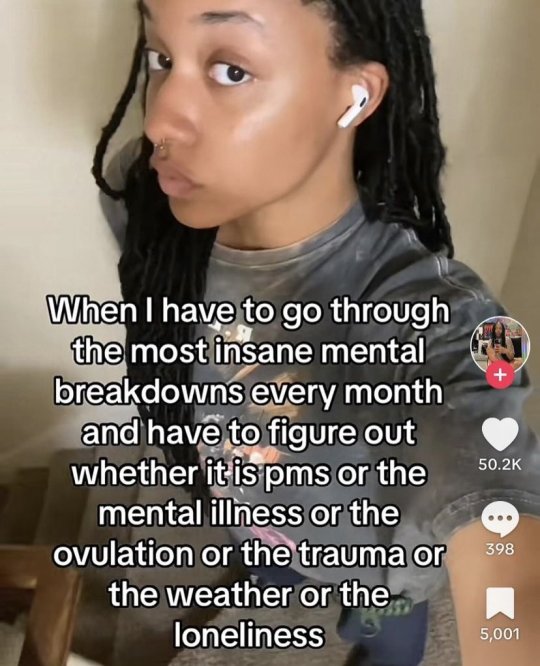Text
reblog if you enjoy napping, being cozy, being conked out, snoozing, wrapping up in blankets, sipping a hot drink, catching some z's, hugging a plushie, or otherwise relaxing and resting
32K notes
·
View notes
Text
'my love' 'my darling''sweetheart' 'baby' oh god
49K notes
·
View notes
Text


i don't know if its physically possible to ignore the dog
12K notes
·
View notes
Text

getting compliments from other girls is so therapeutic
2K notes
·
View notes
Text

17K notes
·
View notes
Text
late night reminder to anyone who needs it to not break your “no contact” if you have one
801 notes
·
View notes
Text
Constant worrying and what you can do about it ✨
Worry is a primarily abstract thinking. It’s not feeling the emotion, it’s not visual imaging, it’s trying to think for a way through. So being a worrier is in some ways being an over thinker.
“Rules” that people who worry tend to follow
- If something bad could happen- if you could simply imagine it, then it’s your responsibility to worry about it. You think you have a responsibility to worry about your negative thoughts.
- You don’t accept any uncertainty. You need to know for sure and you find uncertainty to be intolerable.
- You treat all of your negative thoughts as if they’re really true. For example, you think you might have cancer and treat it as if it’s a proven fact.
- You think anything bad that could happen is a reflection of who you are. For example, if your patient is getting worse, you think you’re a bad therapist. If your partner is upset, you believe you might be a bad partner. If you’re hosting a party and someone’s not enjoying themselves then you must be a bad host.
- You believe failure is unacceptable. Worriers think they cannot tolerate failure at all and that failure is catastrophic and permanent and you are a failure if you fail at one thing.
- You get rid of any negative feeling immediately. Worries tend to think that negative emotions such as anxiety or sadness or anger or confusion or envy or jealousy are emotions they cannot tolerate and worries have an even more negative view of those emotions.
- You treat everything like it’s an emergency. For example, you might think at 3 am in the morning, “will I ever find the love of my life?” And you really need to know at that time for sure who the love of your life will be and when you’ll find that person.
Sometimes worriers have a positive view of worry where they think worry will help solve problems, will prepare them for the worst, will get rid of negative emotions but there are worriers who believe that “if I start worrying then I have to stop worrying immediately”. Worriers are of a mixed mind. On one hand, it’s “I have to worry to be prepared, to be responsible, to avoid danger, to solve problems, to be motivated” and that’s a positive use of worry. Then there’s the negative view which will drive you crazy. “Worry will make me sick, worry will ruin my life, so I have to stop worrying. I need to worry but I also need to stop worrying”.
Few things that might be helpful in handling worrying ✨
- Distinguish between productive and unproductive worry. Ask yourself if this worry will lead to productive or unproductive action.
For example, if I’m doing a workshop next week I can have productive worry where I see if I have an outline of what I have to talk about, printed up handouts for the participants, etc that leads to a productive action. Productive worry leads to a productive action.
Unproductive worry is where I’d be worried about all the things I can’t really do anything about. For example, I’d be thinking “what if somebody in the workshop doesn’t like it?” There’s nothing I can do.
- Accept reality and commit to change at the same time. Accepting reality means I accept limitations, I accept uncertainty, I accept imperfection and to some extent, maybe I need to accept some unfairness. Acceptance doesn’t mean I like it, it just means I’m realistic about what really exists. Committing to change means I’m willing to do the hard things- the uncomfortable things- to make my life better.
- Challenge worried thinking. The fortune telling that “I’ll make an absolute fool of myself”, I can look at that fortune telling and ask myself if there is any evidence that that’s what usually happens. Am I making predictions based on very little evidence or am I mind reading or personalizing things and taking things too personally, or am I thinking that a negative event is a catastrophe?
- Set aside “worry time”. Instead of worrying 24 hours a day, I can set aside 20 minutes of worry time where I can think about my worry or submit my worries to these testa about whether it’s productive or unproductive, whether or not I have any evidence to support my worries, whether or not I’m distorting things.
- Focus on the deeper threat. Some people worry about abandonment, some people worry about confidence, some people worry about helplessness etc. so you need to look at your own particular issue, if you’re a particularly conscientious person you’ll worry that you won’t get things done just right. You need to examine whether you have to be perfect in order to be okay or good enough.
- Turn failure into opportunity. Failure is simply evidence that you’re involved in the real world. All of us fail at something, you can’t go through life doing things unless you’re willing to fail. You need to think of failure not as a catastrophe but as a process of getting on with things in real life. Remember, the master has failed more times than the student has even tried.
- Use your emotions rather than worry about them. For example, it’s legitimate if you’re a parent and you’re worried about your child, how could you be a loving parent and never worry about your child? So having anxiety actually points to your values needs and your values aspirations. Having anxiety or sadness is not in itself a bad thing, it’s the degree to which it impairs your life. 85% of the things people worry about never happen so people are worried about a future that really occurs. Stay in the present moment and focus on what you can do right now. Use mindfulness, meditation and doing things in the real world that solve problems now rather than being worried about 85% of problems that never exist in the future.
These are my notes from Dr. Robert Leahy’s CBT for Chronic Worry.
#cbt#cognitive behavioral therapy#anxiety#worrying#constant worry#chronic worry#self love#healing#self care#recovery#it girl energy#it girl#dream girl tips#dream girl#becoming that girl#pink pilates girl#pink pilates princess#pinkcore#girlblogger#girlposting#mental health#girlblogging#healthy lifestyle#leveling up#glow up era#glow up#health & wellness#hyperfemininity#self care reminder
1 note
·
View note
Text
the stoic teenager to being on the verge of tears anytime something slightly inconvenient happens adult pipeline is very real
5K notes
·
View notes









